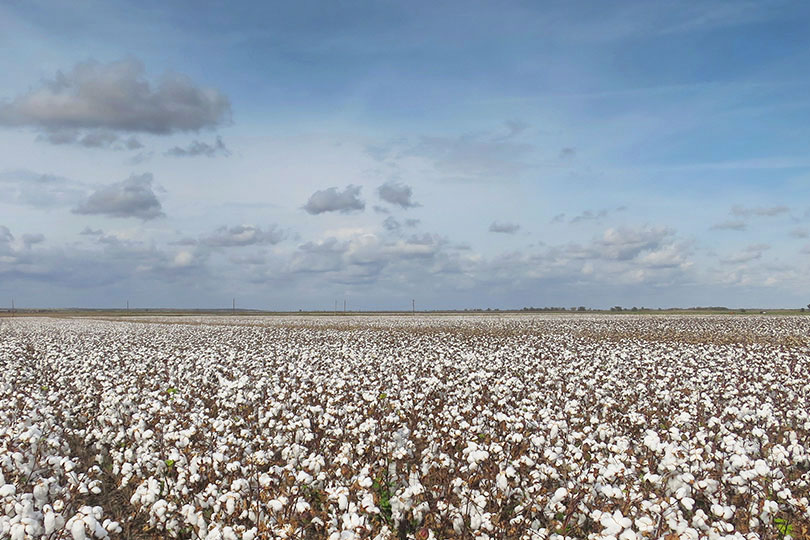By Jennifer Dorsett
Field Editor
The latest Outlook for Agricultural Trade, published by the U.S. Department of Agriculture (USDA), has more grim news for farmers still reeling from the impacts of COVID-19.
U.S. agricultural exports for fiscal year 2020 are projected at $136.5 billion, down $3 billion from the February forecast.
“The global health crisis is damaging the ability of individuals and firms to produce goods and services while simultaneously changing the consumption behavior of consumers and businesses across the globe,” the report stated. “As a result of this global tragedy, real per capita world gross domestic product (GDP) is forecast to decline by 5.5 percent in FY 2020 relative to the prior year.”
According to USDA, soybeans, cotton, corn and wheat will be hardest hit.
“As the nation’s leading cotton-producing state, of course we’re concerned here in Texas about these numbers,” Brant Wilbourn, Texas Farm Bureau associate director of Commodity and Regulatory Activities, said.
Texas farmers planted more than 7 million acres of cotton last year, according to USDA.
Cotton exports are forecast down $1 billion on lower volumes and unit values, USDA said in the May report. The pandemic has reduced foreign demand for cotton as mills drastically cut operations, and changes in consumer spending included reduced demand for cotton products amid worries over household incomes related to reduced hours or layoffs.
In addition to cotton, Texas farmers planted 2.5 million acres of corn and 4.5 million acres of wheat in 2019.
Corn exports are projected at $8.0 billion, down $500 million due to large amounts in storage and weak domestic use for fuel ethanol.
The forecast for wheat exports is down $300 million to $6.1 billion, USDA reported.
Wilbourn added that although it’s not enough to offset losses in other commodity categories, sorghum exports are expected to increase.
In addition to the USDA’s recent Coronavirus Food Assistance Program (CFAP), federal price support programs like Agriculture Risk Coverage and Price Loss Coverage will help farmers stay afloat, Wilbourn said. But it’s still going to be a tough year mentally and financially for farmers already struggling with low prices and recent droughts.
He noted agricultural exports are also down due to competition from other countries with weaker currencies, making their goods cheaper and therefore more attractive to foreign buyers.
“Texas farmers and ranchers are facing very difficult market conditions,” Wilbourn said. “But farmers are the eternal optimist and just keep farming, no matter what.”

